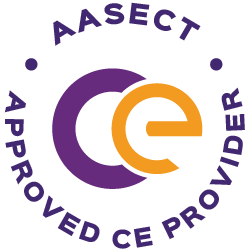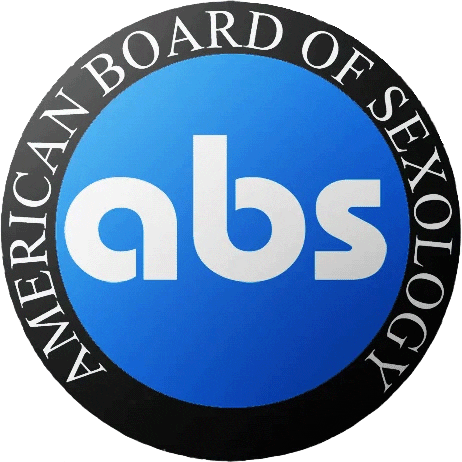Have you ever wondered if there’s a career in helping people with their intimate lives?
When most people think of careers in sexuality, they picture therapists, doctors, or educators. But there’s another profession quietly growing in recognition worldwide: sex coaching.
For many, hearing the term sparks curiosity: What does a sex coach do? How is this different from a therapist or from sex education? And – perhaps most exciting – how could someone actually become a sex coach?
This guide will walk you through the essentials: what sex coaches do, who they help, why this career is unique, and how you can join a growing global movement of Certified Sex Coaches™.
What Does a Sex Coach Do?
A sex coach is a trained professional who combines coaching skills with sexology knowledge to support individuals and couples in improving their sexual wellbeing. The role is neither medical nor diagnostic – and it’s more than simply giving information.
In practice, a sex coach might spend one session teaching communication tools, another guiding a client through confidence-building exercises, and another suggesting at-home practices to help couples reconnect. The work is always talk-based, future-focused, and rooted in creating a safe, shame-free space where clients feel supported to grow.
While every practitioner brings their own style, sex coaches often:
- Create a safe space for clients to talk openly about intimacy without judgment.
- Teach practical tools for communication, confidence, and relationship skills.
- Guide clients to explore new perspectives on pleasure, desire, and intimacy.
Think of a sex coach as a bridge: not providing medical treatment or psychotherapy, and not simply teaching anatomy in a classroom – but helping clients integrate knowledge, mindset, and behavior change into everyday life.

Common Areas a Sex Coach Supports
Clients come to sex coaching for many reasons, often carrying questions or struggles they haven’t been able to voice anywhere else.
One client might be wrestling with performance anxiety – worried about maintaining erections or “lasting long enough.” Another may be part of a couple who love each other but find themselves frustrated by mismatched desire.
Some arrive weighed down by shame, unsure how to even speak about pleasure after years of cultural or religious silence. Others want to feel at home in their bodies again, whether after childbirth, during menopause, or following illness.
And then there are the explorers: singles who want to build confidence in dating, or partners eager to expand their pleasure toolkit together.
Across all of these situations, the sex coach’s role is to:
- Identify the client’s goals.
- Unpack the beliefs, habits, or fears that are getting in the way.
- Provide practical tools and guidance so clients can move forward with more confidence, clarity, and connection.
How Is Sex Coaching Different from Therapy or Education?
One of the biggest questions people ask is: “Isn’t this just therapy?” The answer is no.
While therapy and coaching share some similarities, the focus and approach are different. Therapy is clinical and often rooted in the past. A therapist might help a client process trauma, diagnose a condition, or work through mental health concerns.
Sex education, on the other hand, provides knowledge. You might encounter a sex educator leading a classroom session, giving a lecture, or creating resources about anatomy, contraception, or consent. It’s valuable work – but it usually stops at information.
Sex coaching is different. It’s about moving forward. A sex coach helps clients set goals for their intimate lives, learn new skills, and apply them in real time. The process is action-oriented and growth-focused, more like having a guide who walks alongside you as you experiment, learn, and gain confidence.
Sex coaches often collaborate with therapists, doctors, and educators, but their role is distinct. They are not medical providers, and they never engage in sexual contact with clients. Instead, they empower people to create lasting change through conversation, education, and practical tools.

Who Becomes a Sex Coach?
The people drawn to this work are as diverse as the clients they serve. Many SCU graduates come from backgrounds such as psychology or healthcare, wanting to expand their skills beyond the clinic – like a nurse who noticed patients often confided about intimacy concerns they couldn’t share with anyone else.
Others have been life coaches or yoga teachers who realized intimacy questions were showing up again and again with their clients, and wanted the tools to respond with confidence.
Many are drawn from personal experience too: people who’ve navigated their own journey through shame, body confidence, or desire struggles, and now feel called to support others through the very challenges they once faced themselves.
What unites them is a calling – the desire to help others feel whole, confident, and connected in one of the most important parts of life.
A Day in the Life of a Sex Coach
So – what does a sex coach really do all day? Every coach shapes their practice differently, but here’s what a day might look like:
8:30 AM: Morning prep
Coffee in hand, you review your client notes and update your schedule. One of today’s clients is a couple who want help bridging their desire differences. Another is a young professional struggling with performance anxiety. You take a few minutes to ground yourself, sex coaching is heart work as much as head work.
9:00 AM: Online client session
Your first session is on Zoom. The client is nervous, but grateful to finally have a safe space to talk about sex. Together, you explore the roots of his anxiety, then set a practical home practice: mindful breathing and journaling after self-pleasure. By the end of the hour, he looks visibly lighter.
11:00 AM: Workshop planning
You block time to design an upcoming group workshop on sexual confidence. You sketch out exercises, build slides, and decide how to market it in your newsletter. Group offerings like this not only expand your reach but also give you more financial stability beyond 1:1 work.

1:00 PM: Lunch and content creation
Over lunch, you brainstorm a blog post: “How to Talk About Sex Without Shame.” Later, you’ll record a short podcast episode on the same theme. Sharing content helps build your authority and draws in potential clients who didn’t even know sex coaching existed.
2:30 PM: Professional networking
You hop on a call with a pelvic floor physiotherapist. You discuss how to cross-refer clients: when someone presents with pain during sex, you’ll refer them to her; when she sees clients struggling with body confidence or intimacy, she’ll refer them back to you. These collaborations strengthen your professional ecosystem.
4:00 PM: Second client session
This time, you meet with a couple. They’ve been arguing about mismatched desire. Instead of focusing on who’s “right,” you guide them into a structured conversation where both partners share what intimacy means to them. They leave with an exercise to practice: a weekly check-in ritual to talk about desires and boundaries.
6:00 PM: Continuous learning
The day winds down, but your growth doesn’t stop. You join an online supervision group with fellow sex coaches from around the world. You share insights, discuss challenging cases, and keep your skills sharp.
By evening, you close your laptop feeling fulfilled. Your work blended coaching, education, creativity, and community – all in service of helping people feel more confident and connected in their intimate lives.
How to Become a Sex Coach
Because this work is sensitive and impactful, professional training matters. While sex coaching isn’t legally regulated in most countries, certification demonstrates your commitment to ethics, credibility, and excellence.
At Sex Coach U, our comprehensive training includes:
- Sexology foundations: anatomy, arousal, pleasure, desire, and relational dynamics.
- Coaching skills: active listening, powerful questioning, goal-setting frameworks.
- Ethics and scope of practice: clear boundaries, referral protocols, and professional conduct.
- SAR (Sexual Attitude Reassessment): an experiential process to explore values and reduce bias.
- Supervised practice and community: so you’re never working in isolation.
- Business foundations: practical guidance on branding, marketing, and building a sustainable, ethical coaching practice.
Graduates of SCU are now practicing in over 85 countries worldwide, building careers that are academically rigorous, professionally credible, and deeply fulfilling.
Is Sex Coaching a Good Career Choice?
For the right person, sex coaching can be both rewarding and sustainable. Imagine starting your day knowing you have the freedom to choose your schedule – some coaches see clients online from their home office, while others meet in person in private practice spaces. This flexibility makes it possible to design a career that works around your life, not the other way around.
There’s also room to grow beyond one-to-one work. Many sex coaches branch into group programs, workshops, retreats, or digital courses, expanding their reach while creating multiple income streams. This diversity not only strengthens your business, it makes your work more dynamic and creative.
Perhaps the most powerful reason people choose this path is impact. Few careers allow you to witness transformation so directly. One client leaves a session standing taller, free from years of shame. A couple discovers new ways to connect after months of frustration. These moments remind you why this work matters.
And yes – sex coaching can be financially sustainable. Certified Sex Coaches™ typically charge $125–$300 per session, with packages, workshops, and memberships offering scalable ways to serve clients and grow income. Like any business, success requires dedication, creativity, and persistence. But for those who feel called to this field, the rewards – personal, professional, and financial – are profound.
FAQs About Sex Coaching
Do sex coaches touch their clients?
No. Sessions are always talk-based. A coach might suggest at-home practices such as journaling, mindful self-pleasure, or communication exercises with a partner, but they never engage in physical contact with clients.
Is sex coaching legal?
Yes, in most countries. Because coaching is still a relatively new field, it typically does not fall under regulated medical or therapeutic practice. What matters most is that coaches operate ethically, stay within their professional scope, and avoid making medical claims unless they hold a license in that field.
How do I know if sex coaching is for me?
If you’re passionate about sexuality, open-minded, empathetic, and eager to support others, this path may be a perfect fit. Many sex coaches describe it as both deeply meaningful and personally transformative. If you find yourself drawn to conversations about intimacy, confidence, or relationships, sex coaching could be a natural next step.
How do I get started?
The best place to begin is with professional training through a recognized certification program such as Sex Coach U. Comprehensive training will equip you with both sexology knowledge and coaching skills, plus the ethical foundation and community support you need to thrive. Exploring a program like SCU also helps you decide if this career truly aligns with your goals and values.
So – what does a sex coach do?
Sex coaches help people transform their sexual lives through knowledge, skill-building, and compassionate support. They guide clients toward confidence, pleasure, and connection. And increasingly, they are recognized as vital professionals in sexual health and wellbeing worldwide.
If you feel the spark of curiosity about this career, you’re not alone. Thousands of people are discovering that sex coaching is not only possible, but deeply needed.
Ready to learn more about becoming a Certified Sex Coach™? Explore Sex Coach U’s training programs here and take the first step toward a career that changes lives.








Leave A Comment